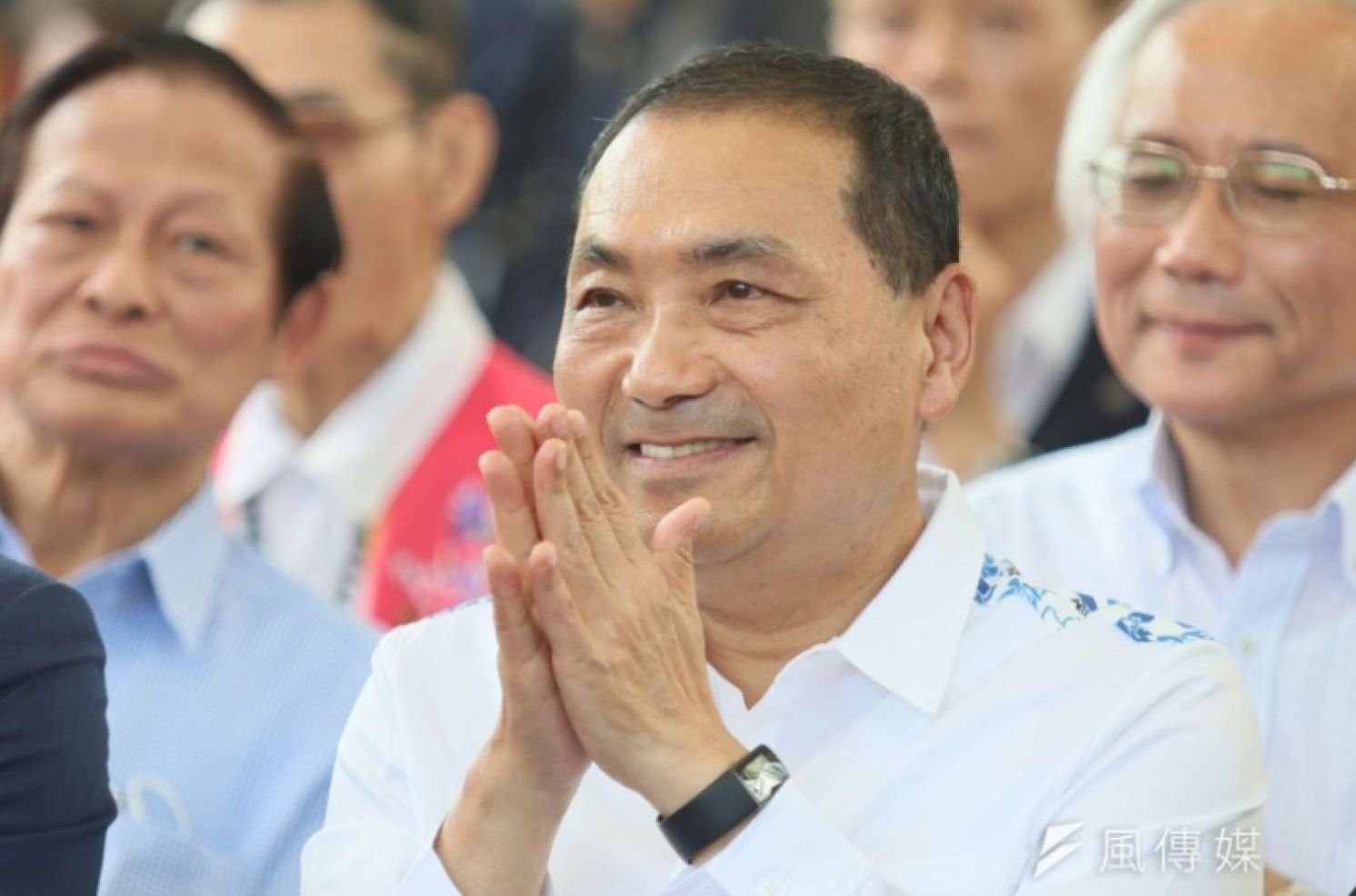
This Week in Taiwan 0813-0819
August 14: Hsinchu Mayor Kao Hung-an, who is affiliated with the Taiwan People's Party (TPP), was reported last year for allegedly fraudulently receiving office expenses while serving as legislator. The Taipei District Prosecutor's Office concluded its investigation and indicted Kao and five assistants in accordance with the Anti-Corruption Act and Criminal Code. Kao's indictment may affect the TPP's electoral performance in Hsinchu and even impact whether her former boss, Terry Gou, founder of Hon Hai Precision Industry Company (Foxconn), runs independently for president.
August 15: Responding to the label of "pragmatic Taiwan independence worker" in a televised interview with Bloomberg, Vice President William Lai responded for the first time that there is "no path to independence" because Taiwan is a sovereign state named the Republic of China. He will continue President Tsai Ing-wen's usage of the "Republic of China (Taiwan)" and not change the country name. According to Lai, his pragmatism means that Taiwan is already a sovereign state named the R.O.C. and not part of the People's Republic of China; the R.O.C. and P.R.C. are not subordinate to one another, so there is no need to declare independence again. He also stated that the international red line is Taiwan's red line.
In response to Lai's transit via the United States causing rising tensions in the Taiwan Strait, the U.S. aircraft carrier Reagan Strike Group was deployed off the eastern coast of Taiwan.
August 15: Mainland China's Ministry of Commerce announced that it will impose an "anti-dumping duty" of 16.9 percent to 22.4 percent on Taiwan's polycarbonate. According to statistics from the Ministry of Finance, polycarbonate exports amounted to about US$1.06 billion in 2022, of which US$830 million were exported to the mainland. This move will make related products lose competitiveness in mainland China. Analysts point out that polycarbonate is an item on the early harvest list of the Cross-Strait Economic Cooperation Framework Agreement (ECFA). Observers will pay attention to whether the move is meant to withdraw certain trade preferences on the early harvest list without changing ECFA.
August 16: Democratic Progressive Party (DPP) Legislator Lai Pin-yu recently criticized Kuomintang (KMT) presidential candidate Hou Yu-ih's energy policy, which brought her father Lai Chin-lin's position as chairman of the J&V Energy Technology Company into public discussion. The KMT and TPP criticized the senior Lai as head of 19 green energy companies, which provide political contributions to the DPP, for exploiting green energy policies to reap benefits.
August 17: According to the latest presidential poll released by Formosa newsletter, DPP presidential candidate William Lai won 35.7 percent, securing first place. The Kuomintang's (KMT) Hou Yu-ih received 21.9 percent, surpassing the TPP's Ko Wen-je (21.7 percent). This is the first time since being recruited as the presidential candidate in May that Mr. Hou has assumed the leading position among opposition candidates. Based on an analysis by age, Mr. Ko is losing his absolute advantage among young voters.
According to a poll by the Taiwan Public Opinion Foundation, some 56.6 percent of voters are optimistic about Mr. Lai's election, reflecting the political judgment of voters as a societal consensus and a contest between a united ruling party against a divided opposition camp.
August 18: In April, mainland China's Ministry of Commerce launched an investigation into Taiwan's trade barriers. The preliminary investigation results indicate that Taiwan has imposed trade barriers against the mainland, and it will study the suspension or partial suspension of tariff preferences for Taiwanese products under ECFA in accordance with relevant regulations. The Taiwan Affairs Office (TAO) of the State Council expressed support.
The Ministry of Economic Affairs responded that Taiwan did not violate World Trade Organization (WTO) regulations, and that China's move is politically motivated. Taiwan is willing to discuss relevant trade issues under the WTO framework.
August 18: The Directorate-General of Budget, Accounting and Statistics (DGBAS), Executive Yuan, updated its latest economic forecast. Taiwan's economic growth rate for the whole year is now estimated at 1.61 percent, the lowest figure in eight years and well below the target threshold of 2 percent. The chief reasons are weak global terminal demand and prolonged digestion of inventory, which significantly reduced the annual economic growth rate estimate from 2.04 percent in May by 0.43 percentage point. The DGBAS released its initial estimate for economic growth in 2024 as 3.22 percent.
August 20: Taiwan has been dubbed a "pedestrian hell" by CNN, and civil rights groups launched a demonstration to "return the roads to the people" to appeal for pedestrian rights, attracting tens of thousands of participants. William Lai, Hou Yu-ih, Ko Wen-je, as well as Terry Gou, who are interested in running for president, all came to support the event. Minister of Transportation and Communications Wang Kuo-tsai admitted that he did not perform well in his role and bowed during the demonstration to apologize. He promised to fulfill the demands of the civic groups, including reducing pedestrian accidents by half by 2030 and attaining zero pedestrian deaths by 2040.